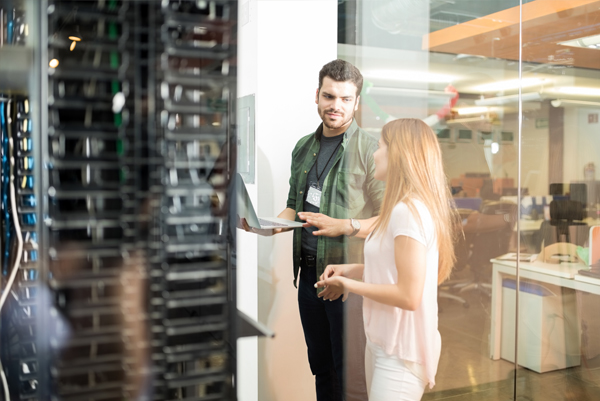Your IT service provider will make sure your digital services run smoothly, but to prevent human error, you need to encourage your staff adheres to these best practices:
Organize your information
You have probably used many computers, phones, and even servers over the years. Take the number of devices and storage methods you have used, multiply that by the number of employees you have, and you may find that your data is not nearly as organized as you thought it was.
When migrating to the cloud, you want to make sure that you have collected your important data from past and present. Any piece of sensitive information not covered by your managed IT services plan will be fair game for cybercriminals.
Also, remember to organize your data in a way that makes you more efficient. Moving to the cloud will boost your speed, accessibility, and security, but if you cannot find what you are looking for, then your day-to-day operations will suffer.
Update your passwords
This one is easy yet important. Hackers and their tools are getting more sophisticated by the minute. In fact, cybercrime is expected to cost businesses $6 trillion annually by 2021!
Your passwords are your first lines of defense, but you need to strengthen them regularly to keep up with hackers’ rapidly-evolving techniques. No matter how strong your doors may be, nothing can be done if you give away the keys.
Make sure your employees know how to create a strong password. You should also plan a meeting in which you all change your passwords together. We recommend that you change your passwords once every quarter. If you hold especially sensitive information, then you should update your passwords every 30 days.
Keep your devices safe
Your devices stay connected to the cloud all day when you are working. Although this is essential for convenient access, it can pose problems if your staff are careless with their belongings.
Remember to keep your devices on your person or locked in a desk when not in use. If an employee leaves their tablet connected to the cloud and goes to lunch for an hour, then anyone who picks up the tablet has access to your entire network.
Require a password to access or wake up all devices
One way to help solve the problem of attackers physically accessing your information is to ensure all of your employees have devices that automatically lock when they sleep. You may not think this is a problem now that phones use fingerprint and facial recognition to authenticate, but work laptop and desktop computers do not use this technology and are commonly left unlocked.
Even biometric locks are not safe. Data shows that Android lock patterns are extremely easy to crack. Locking patterns are so common among users that it is estimated that a hacker has about a 10% chance of unlocking an Android device in just a few minutes. Apple users are better off, since Apple devices require a numerical code and only allow up to 10 password attempts.
In short, make sure your device locks and that it is not easily cracked with a common L-shaped or Z-shaped swipe.
Do not download unnecessary apps/programs
When you download apps and programs, you give those apps permission to access some or all of your information. If these apps are connected to the internet (and almost all of them are), then this creates a possible entry point for hackers and malware.
Downloading apps has become so routine that you and your employees may not realize you are doing it. What, then, are the chances of one getting hacked? As of early 2015, 97 of Android’s top 100 apps had been hacked. Moreover, as of 2017, dozens of top iPhone apps were considered vulnerable to hacking.
This also does not even take into account the purposefully malicious or misleading content being downloaded. For example, it was found that 70% of apps give your information to 3rd-party companies. In September 2017 alone, over 4.3 million people downloaded completely fake apps from the Google Play store.
Keep personal devices separate
Keep all of your leisure and non-work-related apps on a separate device that is not connected to your business network. This is important for you and your employees, because statistically speaking, one of you will likely download a fake app or a compromised program. Moreover, if you give the app permission to access to your passwords, then hackers will be in your cloud in no time.
If your employees cannot afford a second device, consider offering some kind of incentive or compensation. Considering that the vast majority of cyber attacks cost companies over $5,000, the investment is worth it.
For more information
Don’t delay security features that could cost you everything. For more information, contact Scale Technology today at (501) 213-3298.
